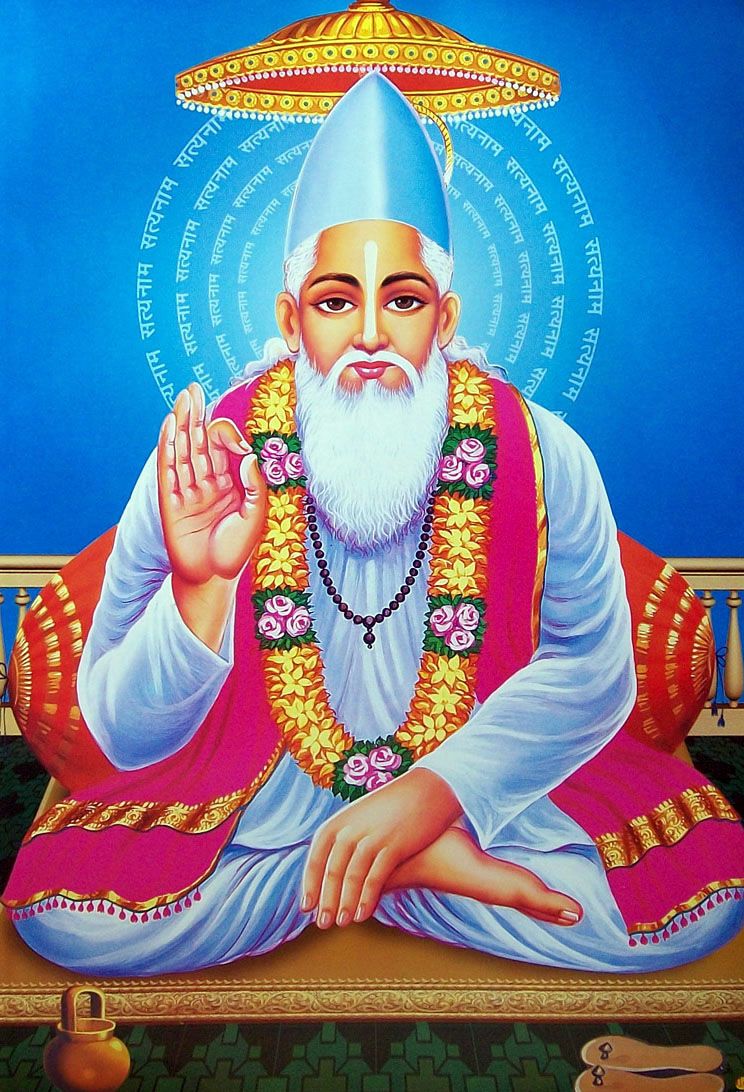Sant Kabir, a revered saint and poet, left an indelible mark on the spiritual and cultural landscape of India. Born in the 15th century in Varanasi, Uttar Pradesh, Kabir's teachings transcended religious boundaries, promoting a universal message of love, harmony, and devotion. His poetry, deeply embedded with philosophical insights, has been embraced by people of various faiths and continues to resonate across generations.
Kabir's birth and early life are shrouded in mystery, adding an air of mysticism to his persona. Legends surround his origins, with stories suggesting that he was born to a Muslim weaver family or that he miraculously appeared on a lotus flower in a pond. Regardless of the uncertainties surrounding his birth, Kabir's life was marked by a quest for spiritual truth and a commitment to unity beyond religious distinctions.
One of Kabir's central teachings revolved around the concept of oneness – the idea that God is beyond the confines of religious labels and can be directly experienced through devotion and inner realization. He often criticized the rituals and dogmas associated with organized religion, emphasizing a personal and direct connection with the divine. Kabir's poetry, collected in the Bijak and the Guru Granth Sahib, challenges conventional religious norms, urging individuals to look beyond external practices and focus on the essence of spirituality.
Kabir's verses are characterized by simplicity and accessibility, making them relatable to people from all walks of life. His poetry is marked by metaphors and allegories drawn from everyday life, reflecting a deep understanding of the human experience. Whether addressing issues of social injustice, the futility of rituals, or the nature of the divine, Kabir's words carry a timeless wisdom that continues to inspire seekers across the world.
The saint's message of unity is particularly evident in his exploration of the relationship between Hinduism and Islam. Kabir's teachings emphasized the essential unity of all religions and the shared path to realizing the divine. He advocated for a synthesis of the best elements of both traditions, highlighting the common ground that unites humanity rather than the divisive aspects that set people apart.
Kabir's impact extended beyond the spiritual realm, influencing social and cultural practices. He spoke out against discrimination based on caste and urged people to rise above societal divisions. His emphasis on equality and social justice aligned with the broader Bhakti movement, contributing to the social reform efforts that sought to dismantle the rigid caste system.
The legacy of Sant Kabir endures through the continued popularity of his verses, bhajans (devotional songs), and the oral traditions that have preserved his teachings. Kabir's poetry has been sung and recited by countless devotees, reflecting the timeless and universal appeal of his message. His influence is not confined to any particular religious community, as people from diverse backgrounds find solace and guidance in his words.
In conclusion, Sant Kabir's life and teachings represent a profound spiritual and cultural heritage. His emphasis on the oneness of all beings, the rejection of religious dogmas, and the promotion of social equality have left an enduring impact. Kabir's poetry, characterized by its simplicity and depth, continues to be a source of inspiration for those seeking a deeper understanding of spirituality and a more harmonious existence in the world.
*Source: Internet





